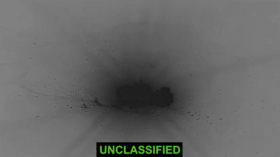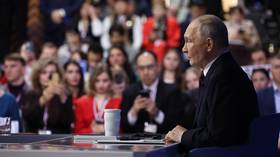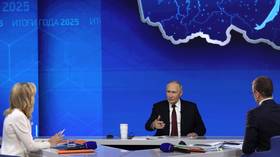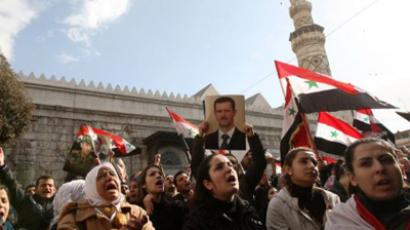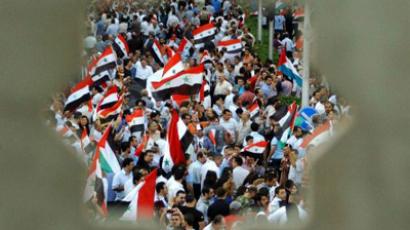Syria: Heart of a global struggle?
Thousands attended the funerals of 26 people killed in Friday’s terrorist attack in Damascus. But while the world focuses on violence within the country, Syria is just a pawn in a big geopolitical game, political analyst Jamal Wakim told RT.
According to the umbrella Syrian National Council – which includes the Muslim Brotherhood – Friday’s bombing "clearly bears the regime’s fingerprints," as cited by AFP.The opposition similarly blamed the authorities for a December 23 bombing in the capital which left 44 dead.However, the Assad government remains adamant that the attack was the work of al-Qaeda, and that it is not cracking down on peaceful protesters, but rather struggling against a violent insurrection.Meanwhile, the Arab League is preparing to meet in Cairo on Sunday to discuss bringing in the United Nations to help end the 10 months of violence – which the latter says has left over 5,000 dead.But while opposition activists say the bloodshed has intensified since the Arab League began its month-long monitoring mission on December 27, Dr. Jamal Wakim, political analyst and professor at the Lebanese International University, told RT the US is really behind the escalation of violence in Syria.“I believe the one behind the bombing [in Damascus on Friday] is the same side that is behind the bombings in central Iraq. I believe the bombs were launched by groups related to the CIA in an attempt to destabilize both Syria and Iraq. At a time when the Americans are withdrawing from Iraq, they are trying to reset a new direction for their policies in the Near East in an attempt to impose a new regional order that keeps this region under their control.”Wakim further says that regardless of who is actually behind the attack, President Assad will ultimately take the blame.“According to Western media, of course he [Assad] is guilty. They want to oust Assad because he didn’t comply with their policies. He didn’t agree to break his ties to Iran, he didn’t agree to severe his ties to Russia or China.”However, while Julie Levesque of the Center for Research on Globalization told RT it was too early to tell who was behind the bombing, she agreed that Western media have already chosen to point a finger at Damascus.“I think right now it’s really too early to say who has committed those crimes – there’s no evidence. One thing that is for sure is that the media has clearly taken sides on, this and they’re clearly promoting the explanation of the opposition. It’s quite strange because in the past ten years, people who have been trying to link or suspect the US government for being behind the 9/11 attacks, these people have been systematically discredited as crazy conspiracy theorists. And now, when it’s the Syrian government that is being blamed for staging these attacks, we don’t hear that crazy conspiracy theory explanation anymore.
In fact, while the world focuses on events within Syria, Wakim contends Damascus is merely a pawn in a far more sinister game.“What they perceive for the region was a region under full American control, that Syria should break its ties because they need to obstruct any Russian, Iranian or Chinese access to the Mediterranean. And Syria is now the last foothold for Russia, Iran and China on the Mediterranean,” he said.“We need to see this confrontation in Syria as part of a bigger confrontation between a coalition of continental powers on the one hand – which includes Russia, China and Iran – confronting a coalition of maritime powers – including the United States, Western Europe and Turkey. The main scene of confrontation is the Middle East, and the core of the Middle East is Syria, for the time being. So we cannot isolate what is going on there from the bigger perspective.”Levesque also says it is no secret the overthrow of Assad's regime has been long-sought by Western powers, and if successful, it will not be difficult to predict who is next in line to fall. “If the Syrian government is overthrown, then they’re going to put someone in place that’s going to further the Western interest. Then Iran would lose an ally, Russia will lose and ally, and of course the next step would be regime change in Iran,” she said.



